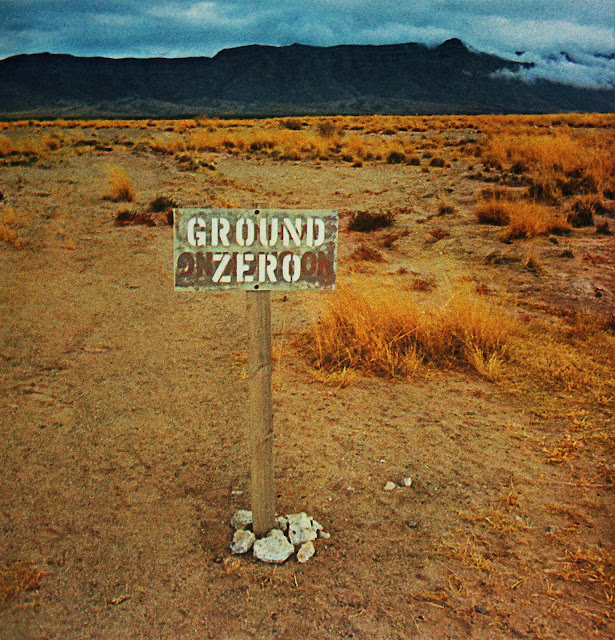Two major exposures of the US-led neo-imperialist war machine hit the Internet in the last two weeks: first, the Washington Post
And what, after a day of media frenzy and frisson, has been the impact? Salon.com, in a notice posted Thursday and headlined “Why we ignored two huge stories,” evidently thinks there will be little to no impact: Both stories, writes Michael Barthel, “have landed with a resounding thud.” If it can’t be summed up in few soundbites, and if there is no direct scandal or titillating visual porn-factor, then Americans can’t be bothered.
That is a chillingly cynical judgment that goes far beyond justified pessimism. The response of the clearly furious US state indicates that the administrators, generals and politicians see things differently. They fear the fallout, and with reason. Despite White House claims that the WikiLeaks documents reveal nothing new or alarming, the snippets that have so far been published and discussed reveal glaring gaps between the official, spin-doctored version of this scandalously under-reported occupation and the destructive realities. Among other things, we now learn of “Task Force 373,” a previously unknown assassination unit, of drone problems, and of high-level resistance to the war from within Pakistani military and intelligence forces.
Moreover, two things are likely to be indisputably confirmed as more of the WikiLeaks archive is analyzed in detail:
First, the war is causing far more civilian casualties than has so far been admitted. When the actual field logs are scrutinized, the mistakes, abuses, excesses and massacres that are glibly written off as “collateral damage” are shown to be, instead, the necessary result of military occupation as such, with its irreducible and structurally-produced fear, hatred and paranoia.
Second, the strategy for “winning hearts and minds” and therefore the war, is failing and must fail, since Afghanistan demonstrates yet again that foreign military occupations have no legitimacy among the occupied.
In short, the question that must emerge from these documents is: “Why are ‘we’ there?” They expose the occupation as unjustifiable in all but the most naked and cynical imperialist terms. They are obviously a potent weapon for an antiwar movement, if there is one that knows how to use them.
That movement, such as it is, has been mostly invisible for years. But now it has another chance to refocus itself and public attention on the war machine and its central connections to every social struggle – a theme ("enforcement") that has been repeated so many times in these posts that I won’t tax patience by doing it again now.
Instead, two points, one urgent and the other grave:
The US state is going after Pfc. Bradley Manning, who it suspects of leaking the Afghan war logs; Manning has been detained pending trial for previously leaking the notorious video of a 2007 massacre in Iraq perpetrated by the crew of a US Apache helicopter gunship. And the state is going after Julian Assange, the editor of WikilLeaks. The warlords need to make an example of both. Their strategy has now emerged: they will try to discredit and destroy WikiLeaks by charging that Assange has put US soldiers and Afghan informers at risk, and that he therefore has “blood on his hands.” This inversion of reality, in substance unworthy of serious response, must be unequivocally and robustly refused. Hands off Bradley Manning and Julian Assange! Prosecute the abuses and massacres brought to light, not the messengers.
Solidarity, in the form of public defenses and hat-passing for legal fees, will no doubt have to be organized in the time-tried ways. But let’s go further now, and remember what others have done and organized in similar wars.
In 1960, after public exposure of widespread torture used by French forces in their colonial war against the Algerian independence struggle, the French state put on trial a network of French citizens who gave material support to the FLN. In that context, French intellectuals – including Jean-Paul Sartre, André Breton, Simone de Beauvoir, Marguerite Duras, Maurice Blanchot, Henri Lefebvre, Alain Resnais, François Truffaut and Pierre Vidal-Naquet – wrote, endorsed and circulated a text called “Declaration on the Right of Insubordination in the Algerian War" - the so-called Manifesto of the 121.
And in 1981, Edward Thompson and Dan Smith published an American edition of Protest and Survive, a collection of texts calling for nuclear disarmament and abolition. For that volume, Daniel Ellsberg, the Rand whistleblower who dealt the Vietnam War a major blow by leaking the top-secret study known as the Pentagon Papers, contributed a text titled “Call to Mutiny.” Enough said.
Second, the Washington Post report, which has gotten far less attention, is equally devastating on a different front. Priest and Arkin document the rapid growth of the US intelligence apparatuses after September 11 – what amounts to a new, covert branch of government, a “top-secret world so large, so unwieldy and so secretive that no one knows how much money it costs, how many people it employs, how many programs exist within it or exactly how many agencies do the same work.”
“Some 1,271 government organizations and 1,931 private companies [now] work on programs related to counter-terrorism, homeland security and intelligence in about 10,000 locations across the United States.” An estimated 854,000 people now have top-secret security clearances for this work, and the equivalent of three new Pentagon buildings have been built for it.
Remembering that this covert parallel apparatus is just one part of a war machine the budget of which, at $1.5 trillion, eats up half of every tax dollar, we have here an astounding social fact that is screaming for attention.
It ought to provide a strong basis for productive discussions and debates with the Tea Party, for the spook agencies have just pulled off an amazing expansion of the repressive state bureaucracy. Up to now, tea partiers have been happy to write the war machine a blank check. The bulk of them are probably immune to reason on this issue and will remain irremediably militarist come what may. But these anti-state tax revolters ought at least to be confronted with this contradiction – on their own terms and with their own arguments. The basic facts about the military-fiscal black hole is a wedge of truth that, driven with cogent arguments, should wake at least some of them up and plant some doubts among their imperial fantasies.
Past posts here have extensively addressed the rise of the national security-surveillance state in the US and in general. As a mainstream mapping of its physical contours, the Washington Post series helps to make this continent of secrecy more concrete and subject to critical evocation.
GR
“Top Secret America,” Washington Post, 19-21 July, 2010.
”Afghan War Diary,” WikiLeaks, 25 July 2010.
Julian Assange at the Frontline Club, London, 27 July 2010; and on DemocracyNow, 28 July 2010.
Julian Assange at the Frontline Club, London, 27 July 2010; and on DemocracyNow, 28 July 2010.




In light of the sharpening attack on WikiLeaks - the Pentagon has "demanded" that the site immediately remove and "return" the Afghan files and the mainstream media has obediently chased and amplified the distraction story of "blood on your hands" - solidarity is the only protection against the isolation and repression of a valuable institution of counter-media. Anyone who wishes to support WikiLeaks in its efforts to organize and sustain its legal self-defense, can find information at http://wikileaks.org/wiki/Special:Support#go_wh
ReplyDelete